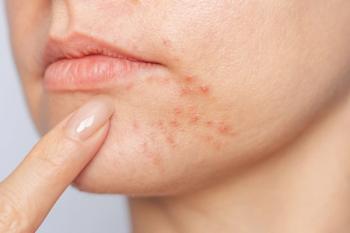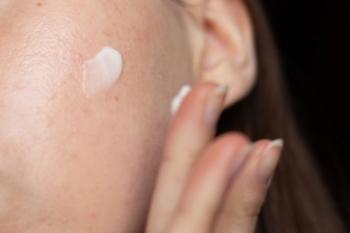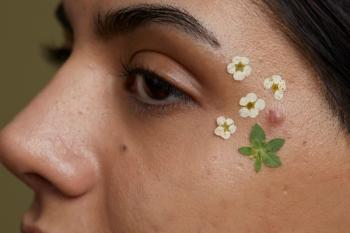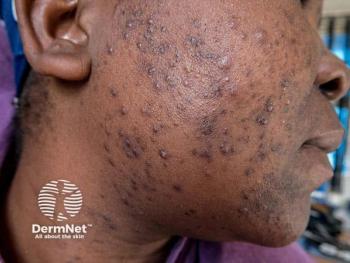
Specific dietary supplements linked to acne
According to a recent review, supplements such as B6/B12, high-dose vitamins and whey protein have been linked to acne development. Study authors suggest physicians ask acne patients about their supplement use and educate them on potential side effects.
Acne has the potential to be triggered by various prescriptions drugs including anabolic-androgenetic steroids (AAS), corticosteroids, hormonal drugs, antituberculosis medications, lithium, drugs containing iodides and bromides. Other therapies have also been associated with acne such as immunosuppressants, autoimmune disease drugs and cancer treatments. Adding to this list, multiple studies have indicated that dietary supplements may also initiate acne development, according to a recently published review in the Dermatology Online Journal.
Study researchers estimate roughly one-half of adults in the United States take dietary supplements daily, many of which may contain ingredients that lead to acne development. They found that those most associated with acne development are high-dose vitamins, such as B6 and B12, whey protein, iodine and “muscle building supplements” that are potentially filled with AAS.
RELATED:
In the study, researchers reviewed numerous published case reports and studies that observed the onset of acne when taking one of these specific supplements and examined condition resolution following discontinuation of the supplement.
“Clinically, the skin findings in cases of drug-induced acne resemble acne, although some describe a monomorphous appearance or a more widespread distribution,” the study authors write. “The medical history is typically notable for sudden onset, along with a medical history of drug intake, and resolution following medication withdrawal.”
Reviewers found high doses of B6 and B12 are linked to the occurrence of monomorphic facial papulopustules appearing mostly on the forehead and chin, or widespread lesions. Acne was also observed on the chest, back, shoulders, arms and neck. While the pathogenesis is unknown, several case reports hypothesize that both B6 and B12 are the culprits of the supplement-induced acne.
MORE:
The review also found that iodine-induced acne could be associated with kelp seaweed supplements, presenting as monomorphic, inflammatory pustules on the face and upper trunk area.
Additionally, results indicate whey protein, typically taken by bodybuilders, was also linked to acne development, with papulonodular acne observed on the trunk and face. Also, AAS-induced acne was discovered to present as papulopustular acne, acne conglobate or acne fulminans, which researchers hypothesize to be aggravated by administration of vitamins B12, B6and B2.
“Acne is a common effect of AAS use by bodybuilders. Unfortunately, even if bodybuilders are not abusing steroids directly, steroids may be present in certain dietary supplements they take to build muscle,” the authors note.
The researchers advise physicians to be proactive by asking acne patients about their supplement use and educate them on potential side effects, such as acne eruptions.
“With studies indicating that about half of US adults report using dietary supplements, it is important that dermatologists directly ask acne patients about their supplement use and educate them on the potential risks of even seemingly innocuous dietary supplements,” add the study investigators. “It is also important that physicians not rely on a written medication history, but instead verbally elicit this information, given that written questionnaires often do not adequately address full nutritional supplement use.”
References:
Zamil DH, Perez-Sanchez A, Katta R. Acne related to dietary supplements. Dermatol. Online J. 2020;26(8):2.
Disclosure: One author disclosed ties to the pharmaceutical industry.
Newsletter
Like what you’re reading? Subscribe to Dermatology Times for weekly updates on therapies, innovations, and real-world practice tips.











